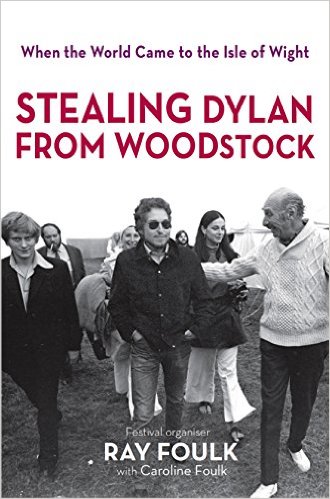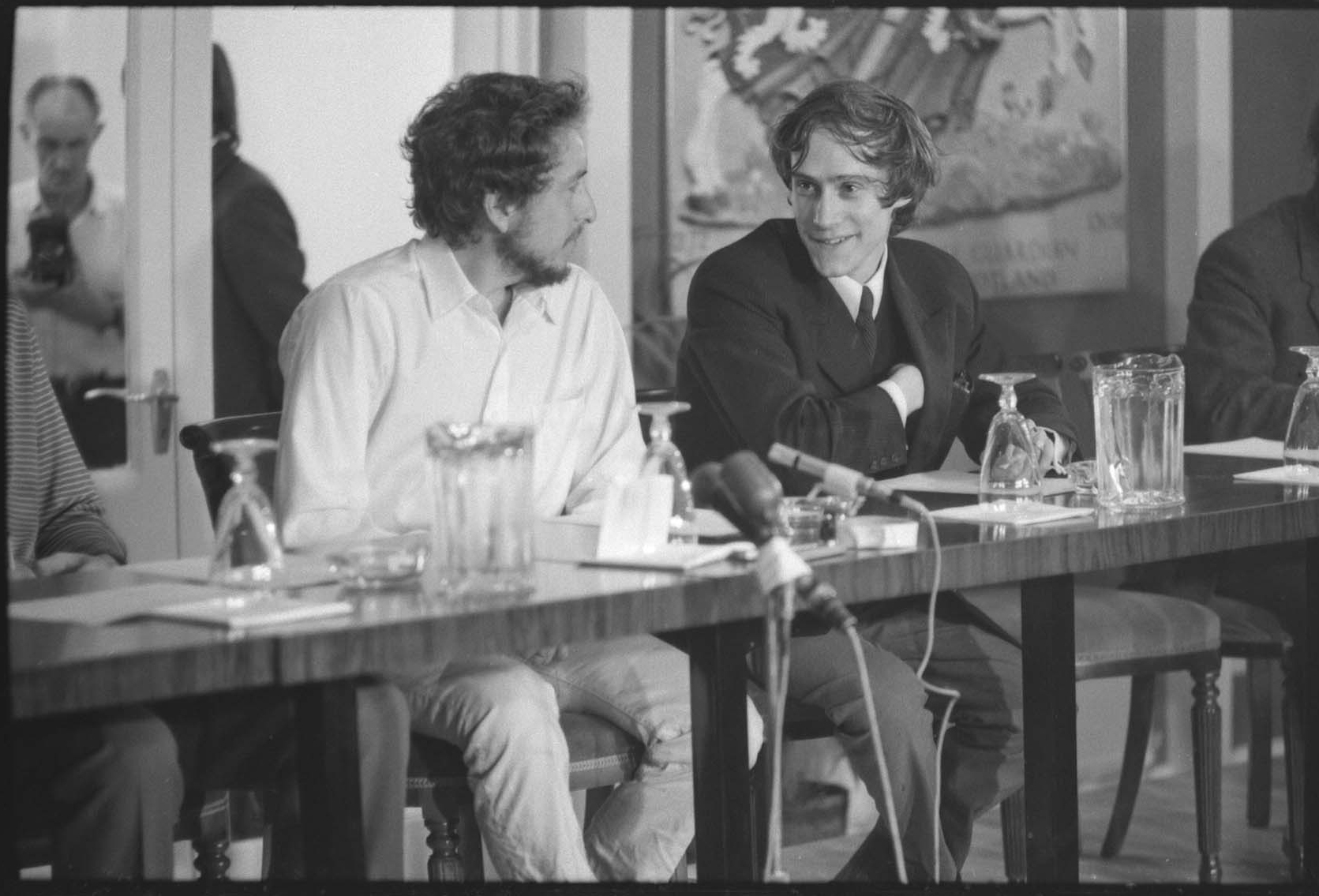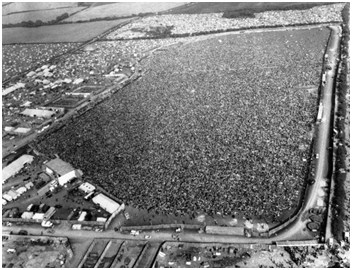Stealing Dylan from Woodstock
by Ray Foulk (m. 1985)

In 1985, at the age of 39, Ray Foulk took up a place in Christ’s College reading Architecture. His earlier life as a rock promoter was all but forgotten. He might have realised why he was at first regarded with suspicion upon his arrival as an undergraduate, one minute being assigned rooms in College, the next being ordered to live out in the town.
In 2011 a cache of photographs were discovered, spearheading Ray to revisit the characters and memories of his Isle of Wight festival days. His two volume account of the extraordinary happenings when he was a young festival organiser has at last been published. It was Ray, a printer, who at 24, brought Bob Dylan out of his reclusive period in Woodstock in 1969, to star at the Isle of Wight. Part one of Ray’s story chronicles Dylan’s only pre-announced performance in a seven-and-a-half year period, occurring just two weeks after the Woodstock Festival—an event blatantly shoved into Dylan’s own back yard to force the star out to play. Dylan had acquired mythic status with his disappearance. Press cuttings reveal he was treated like a ‘messiah’, hence the announcement of his appearance at the Isle of Wight attracting fans from every continent. Miraculously, the young Foulk brothers, Ray with brother Ronnie, managed to persuade Dylan to turn his back on America and choose the Isle of Wight instead. It was perhaps the rock coup of the decade. From that moment Ray and Ronnie were catapulted into a world class arena, far exceeding their original intentions—of raising funds for a local swimming pool. The sleepy Isle of Wight was suddenly the rock centre of the Universe.
In 1970 an alleged 600,000 people descended upon the Island to see Hendrix and Jim Morrison, Joan Baez, Miles Davis, Leonard, Cohen, Joni Mitchell among the raft of contemporary stars taking part. Volume 2, The Last Great Event, recounts the execution of the giant arena festival. The event remains the largest festival on British soil. It’s good reputation emerged from parliamentary investigation and secured the way for Glastonbury and other festivals to proliferate since. However misleading and negative press at the time and a dishonest documentary film made 25 years later besmirched this good reputation.
Ray says: 'As promoters of the three Isle of Wight festivals, 1968-70, we were ordinary young men, suddenly elevated to the highest level of show business, consorting with rock stars and their managements, music industry professionals, politicians, as well as some unruly adversaries. Poignantly, our 1970 festival saw the last major appearances of both Jimi Hendrix (tragically dying 18 days later) and Jim Morrison with The Doors. The event antagonised the island’s elite and attracted a radical element intent on causing trouble. We managed to contain this but the Isle of Wight was changed forever. An act of parliament was even passed in 1971 to curtail any further large scale gatherings there. It was a further 32 years before the festivals could be restored.'
Ray heard years later that the domestic supervisor had denied him rooms in College because he had been the organiser of ‘that drugs festival.’ This amused Ray who was married with a family at 22 and had missed out on the music and wilder aspects of the decadent sixties. 'That sort of thing passed me by,' he recalls, 'I had a lot of catching up to do.'
Ray Foulk’s story is told in two volumes. When the World Came to the Isle of Wight: Vol. 1 Stealing Dylan From Woodstock & Vol.2 The Last Great Event, are written and compiled with Caroline Foulk. Both are published by Medina Publishing.

Ray Foulk (right) with Bod Dylan at a press conference

The Isle of Wight Festival in 1970